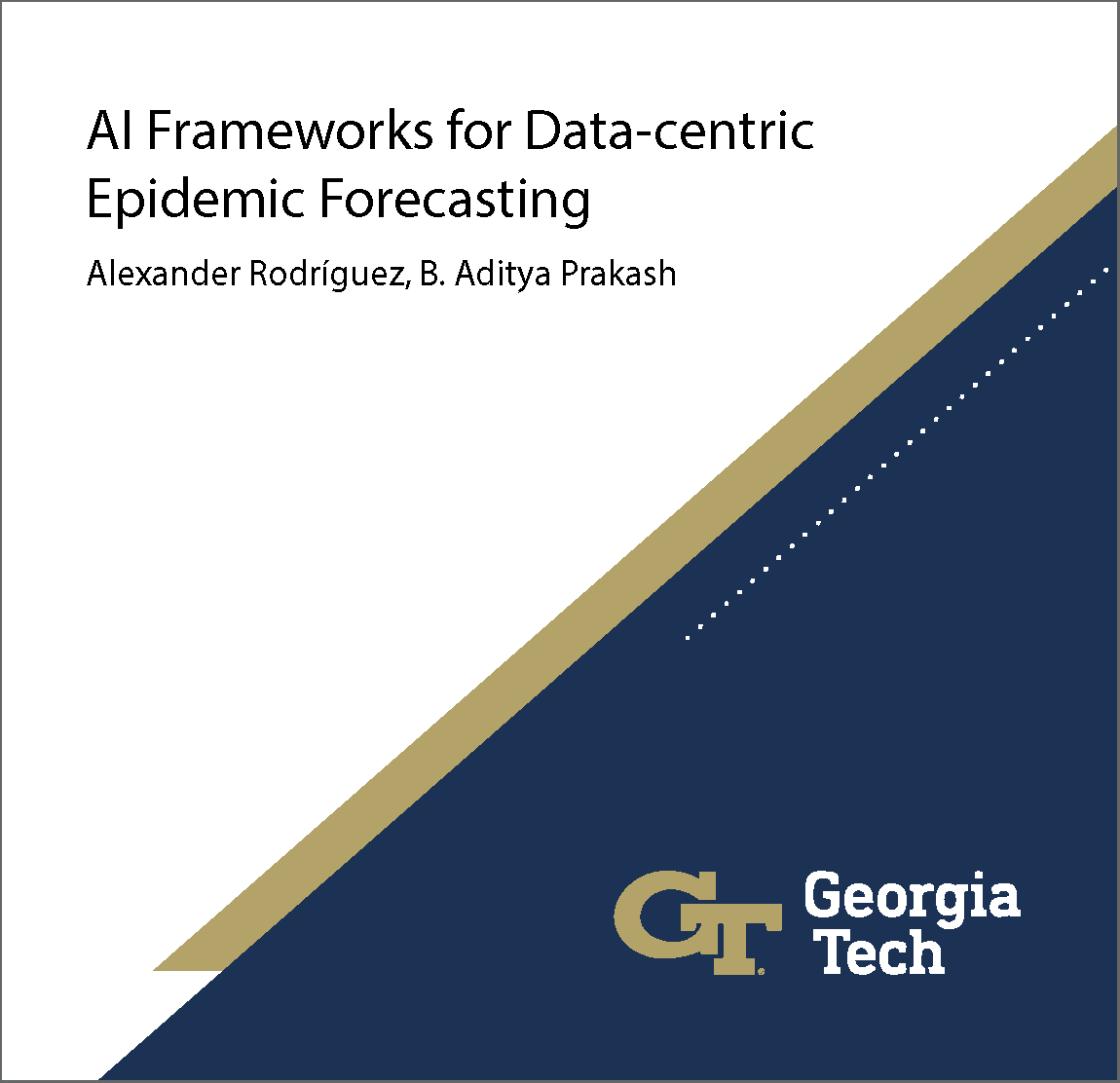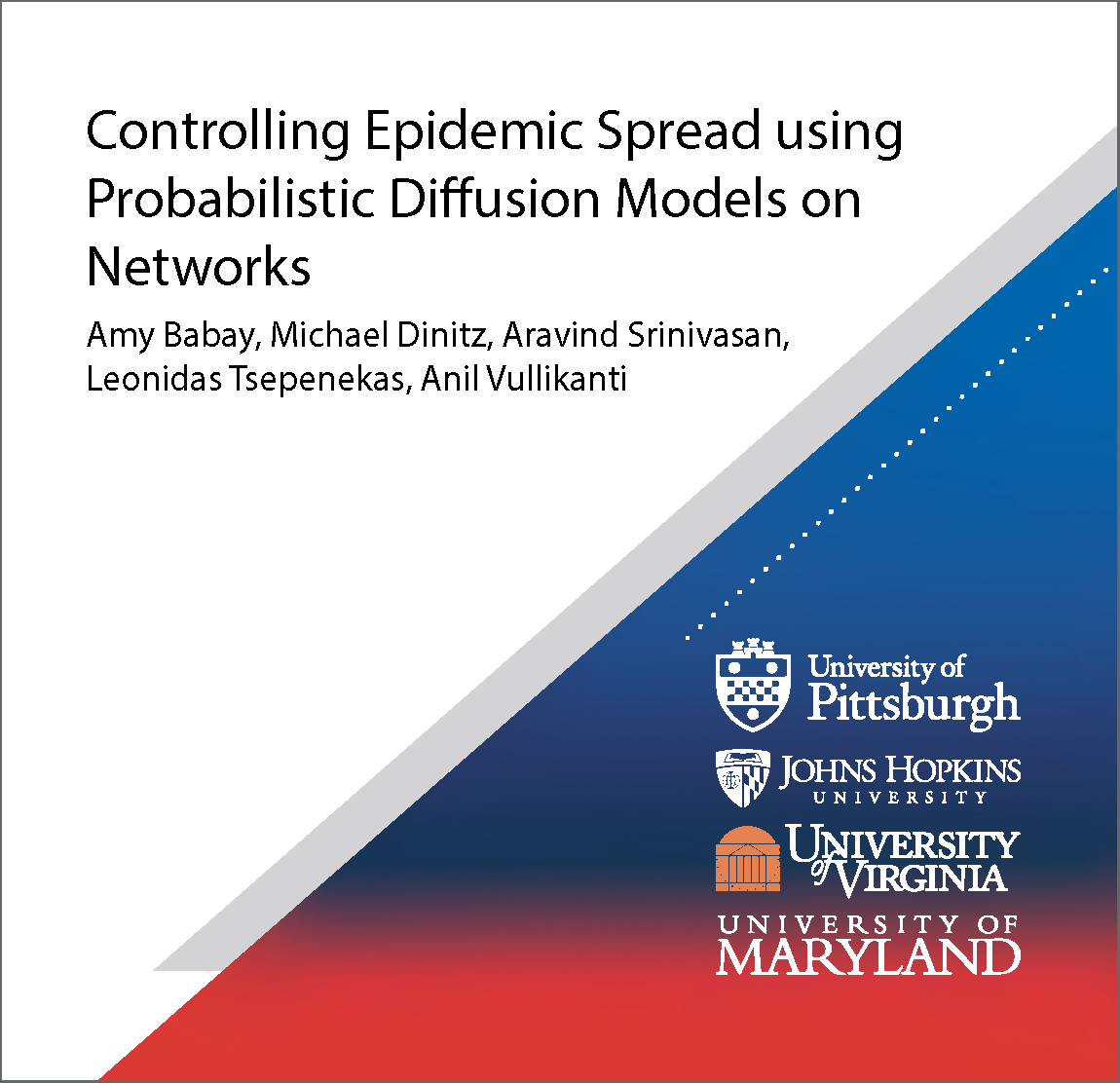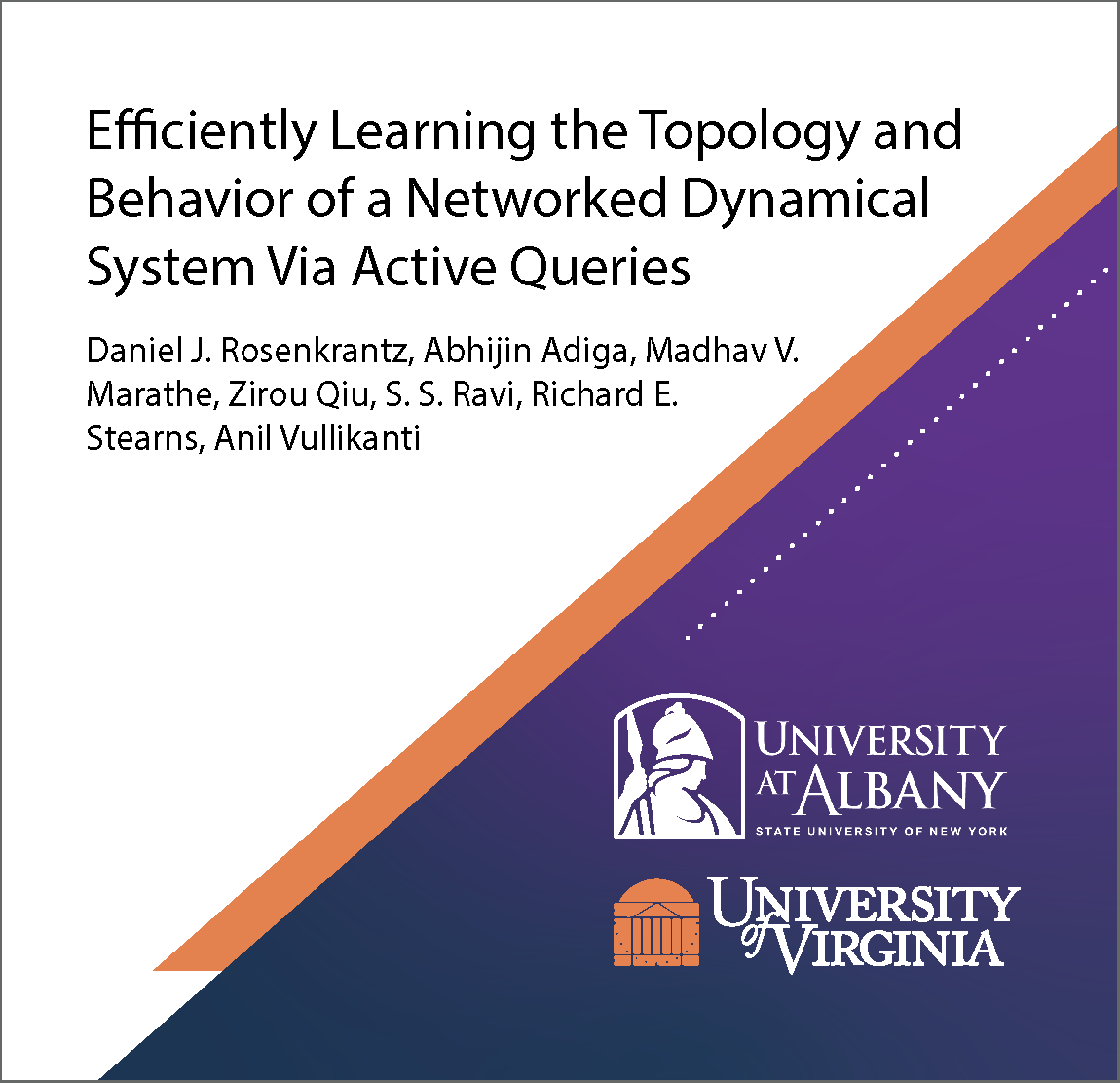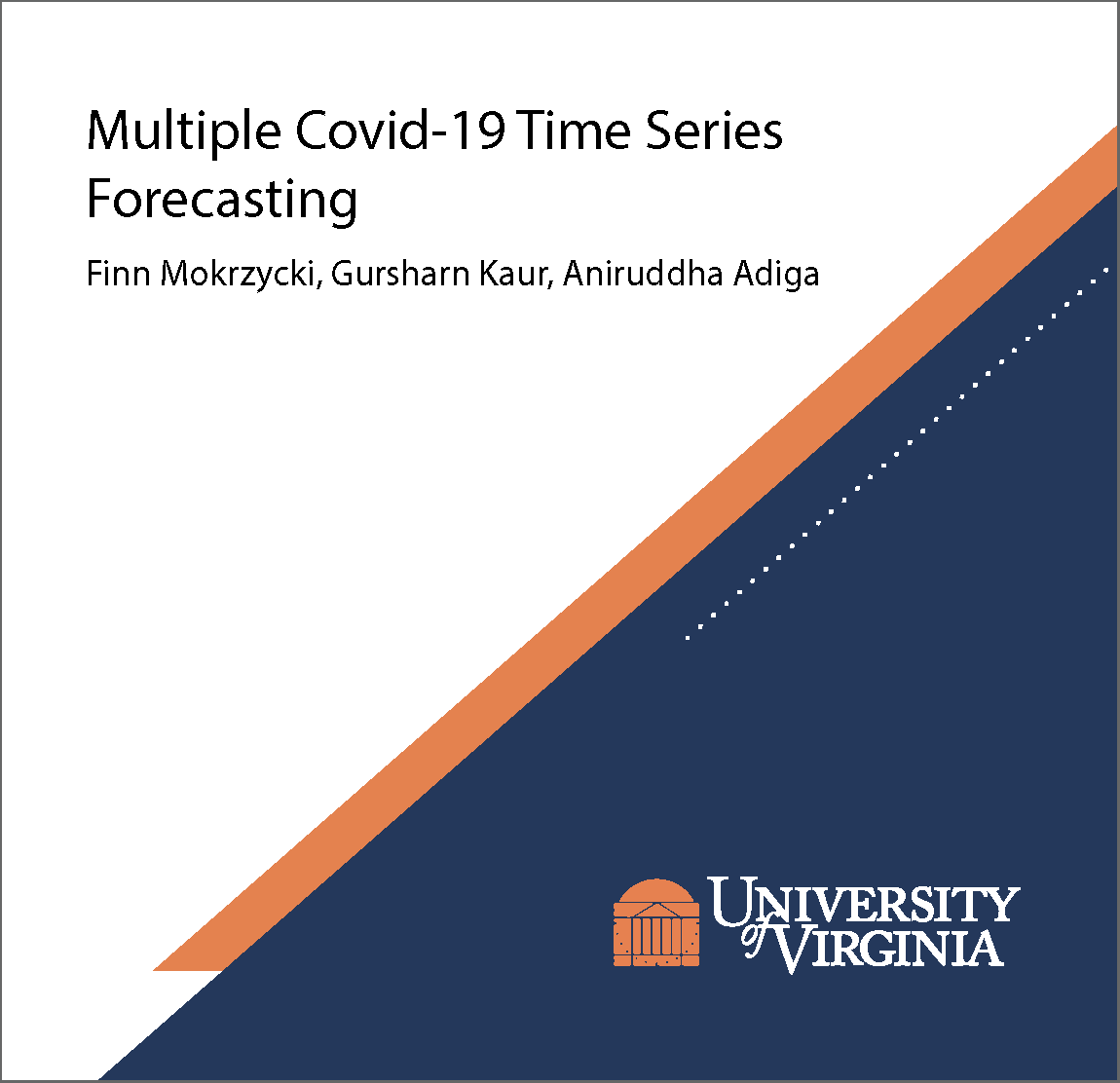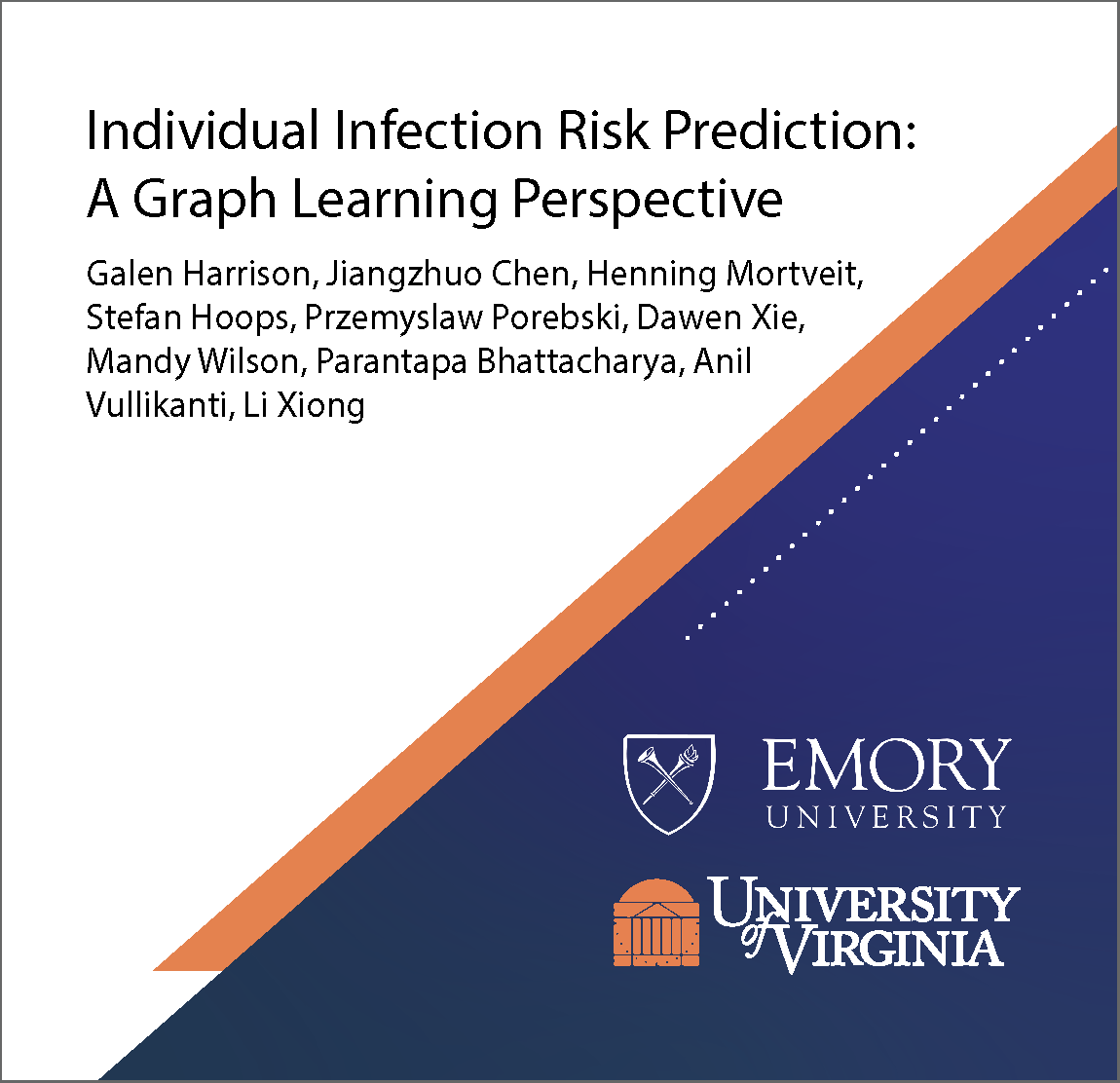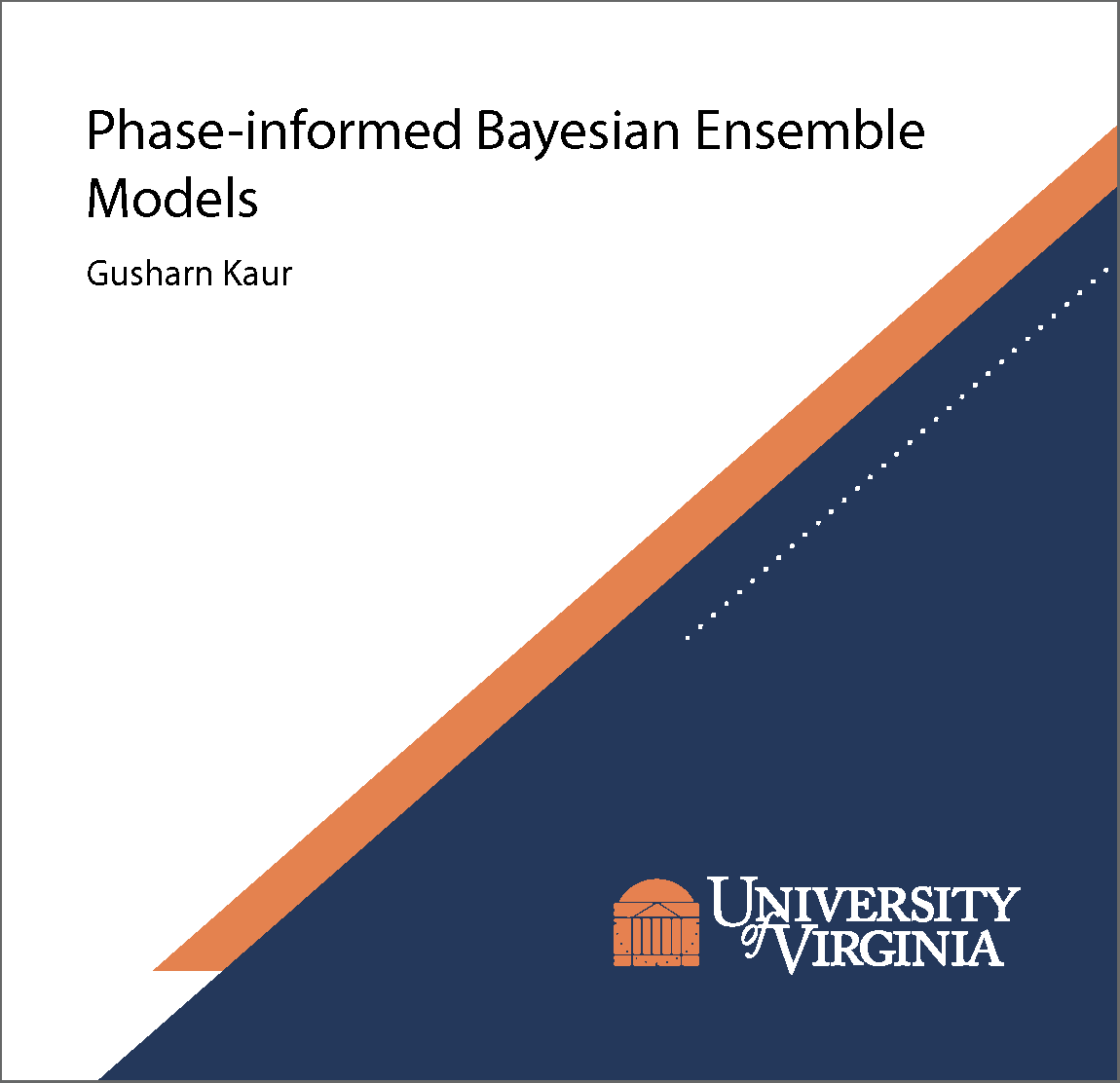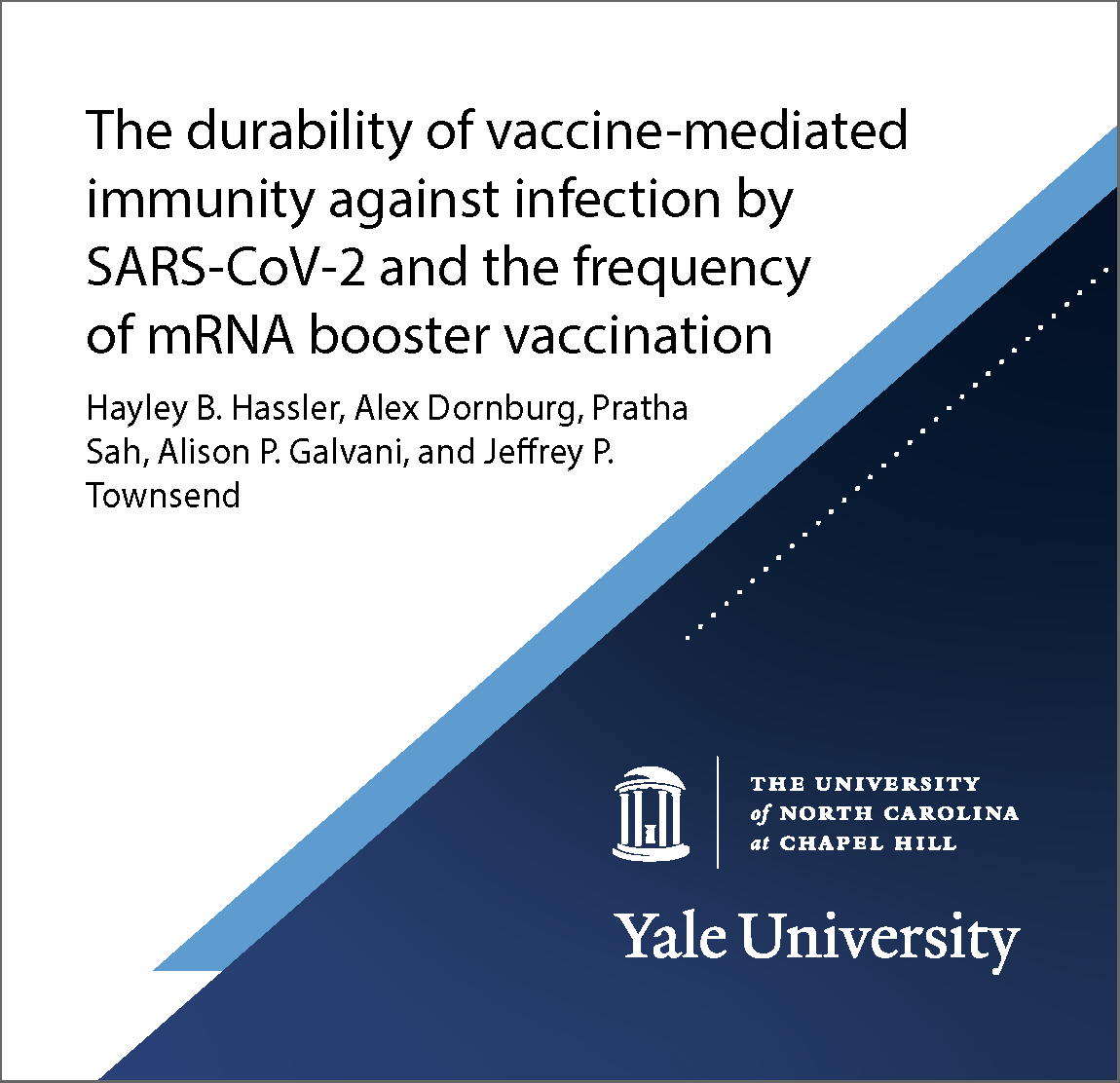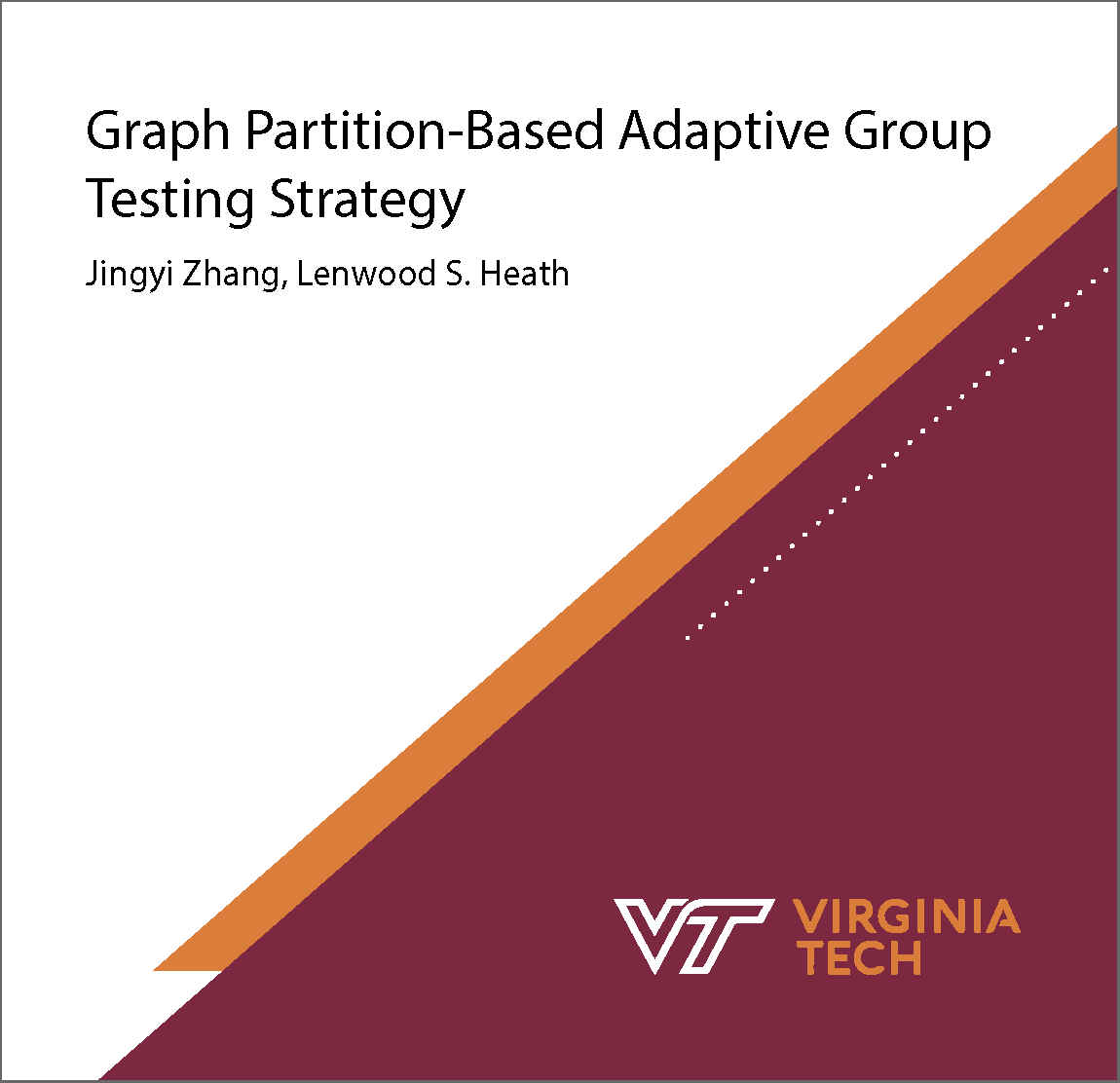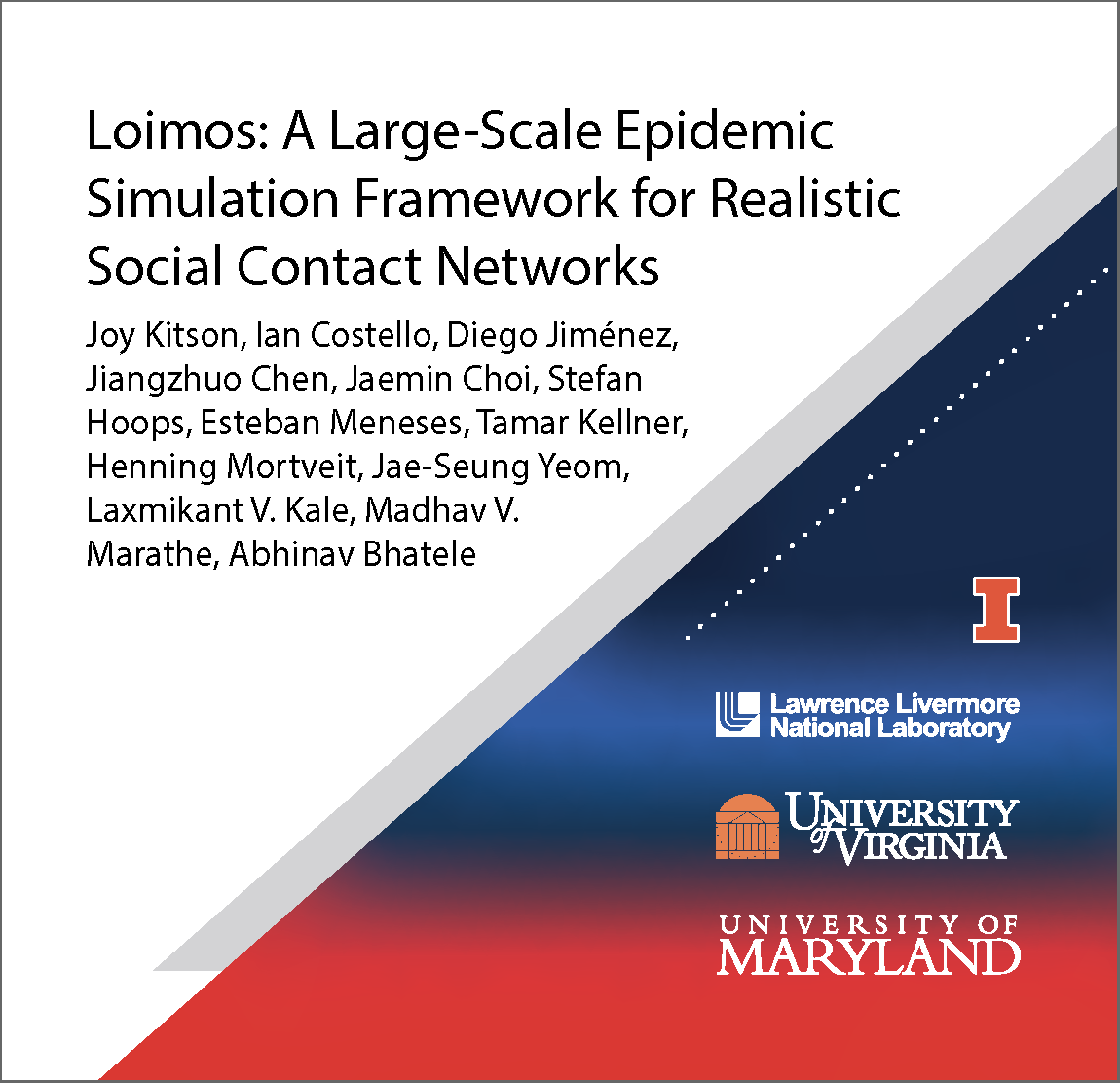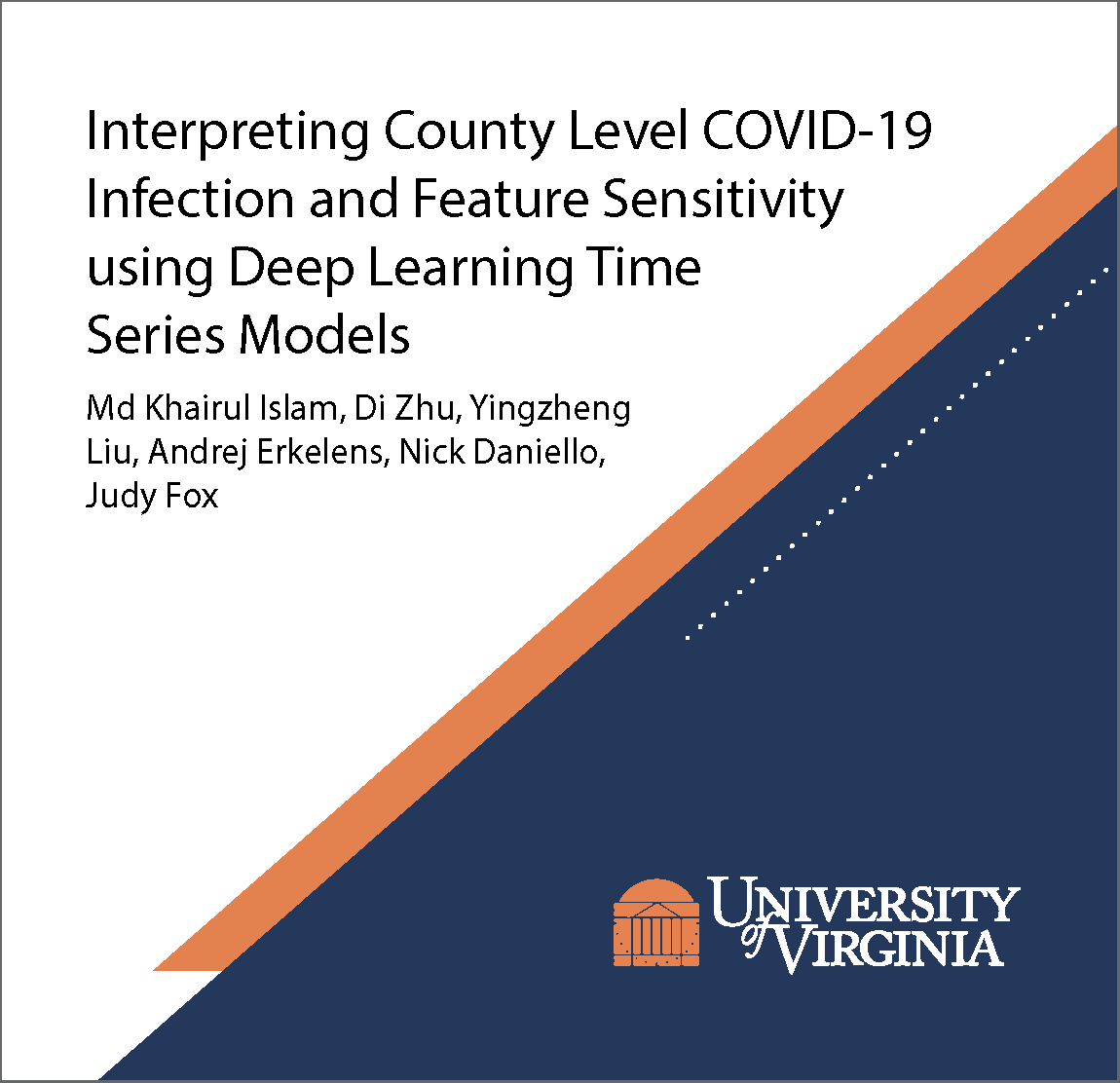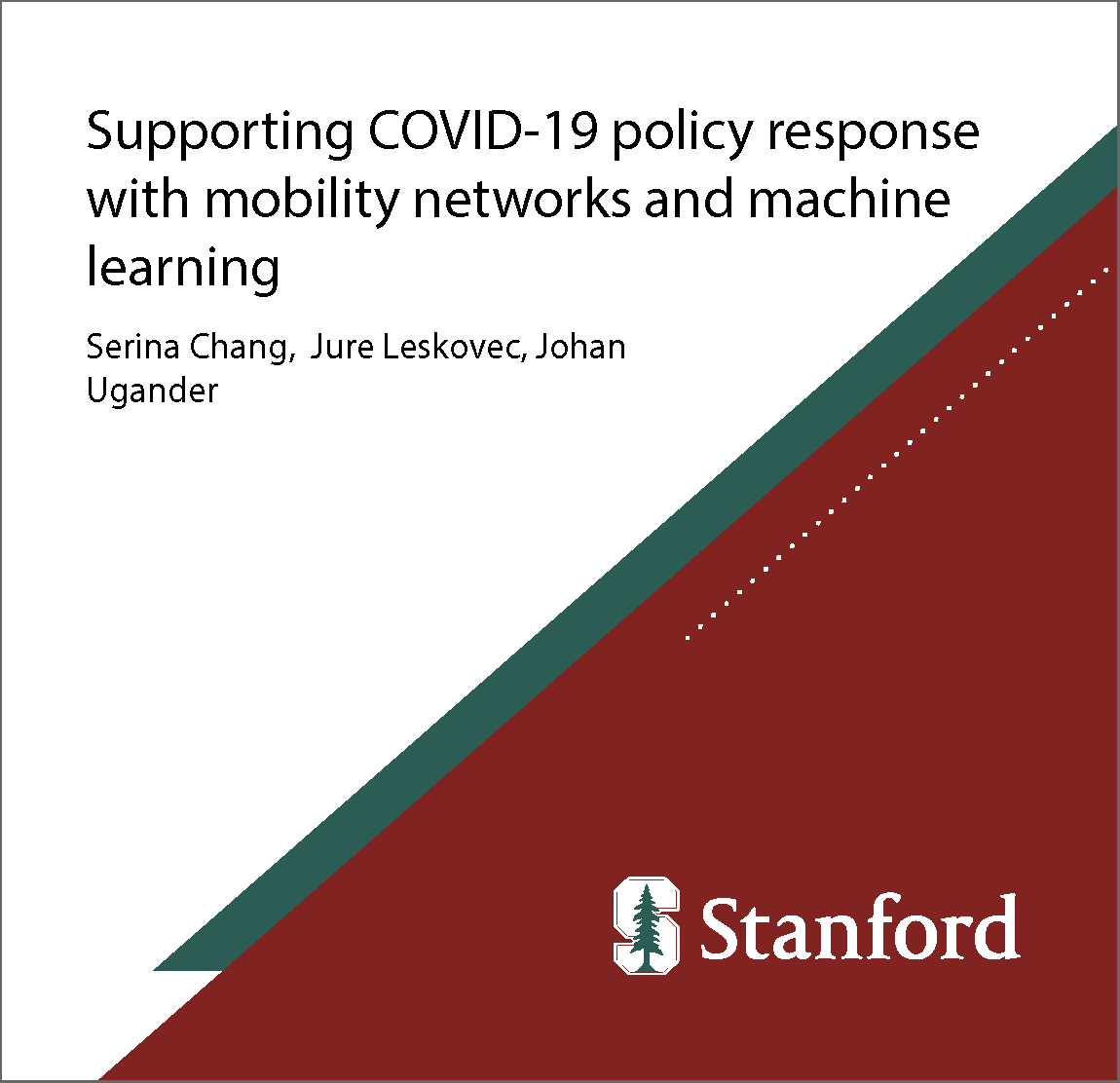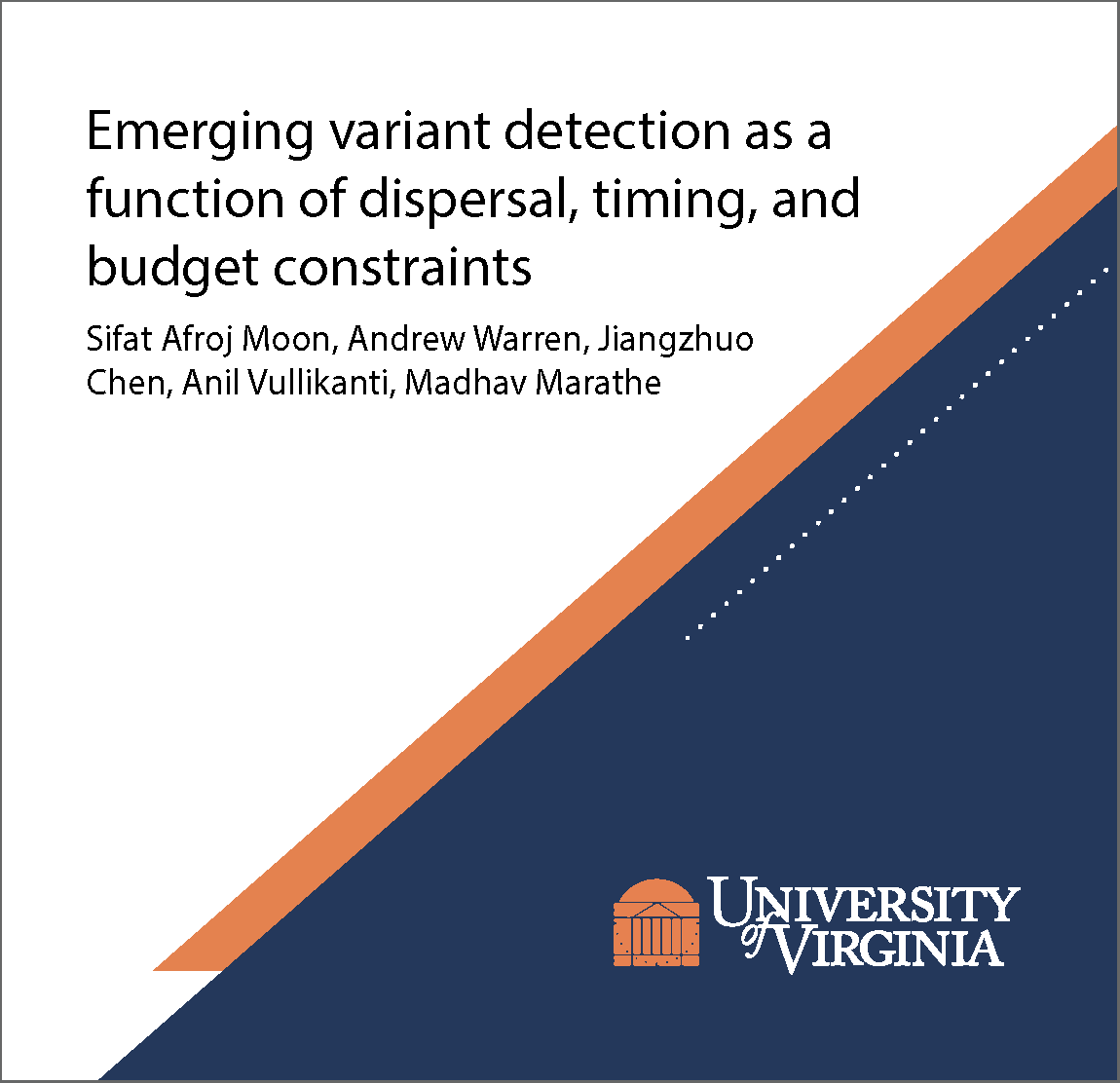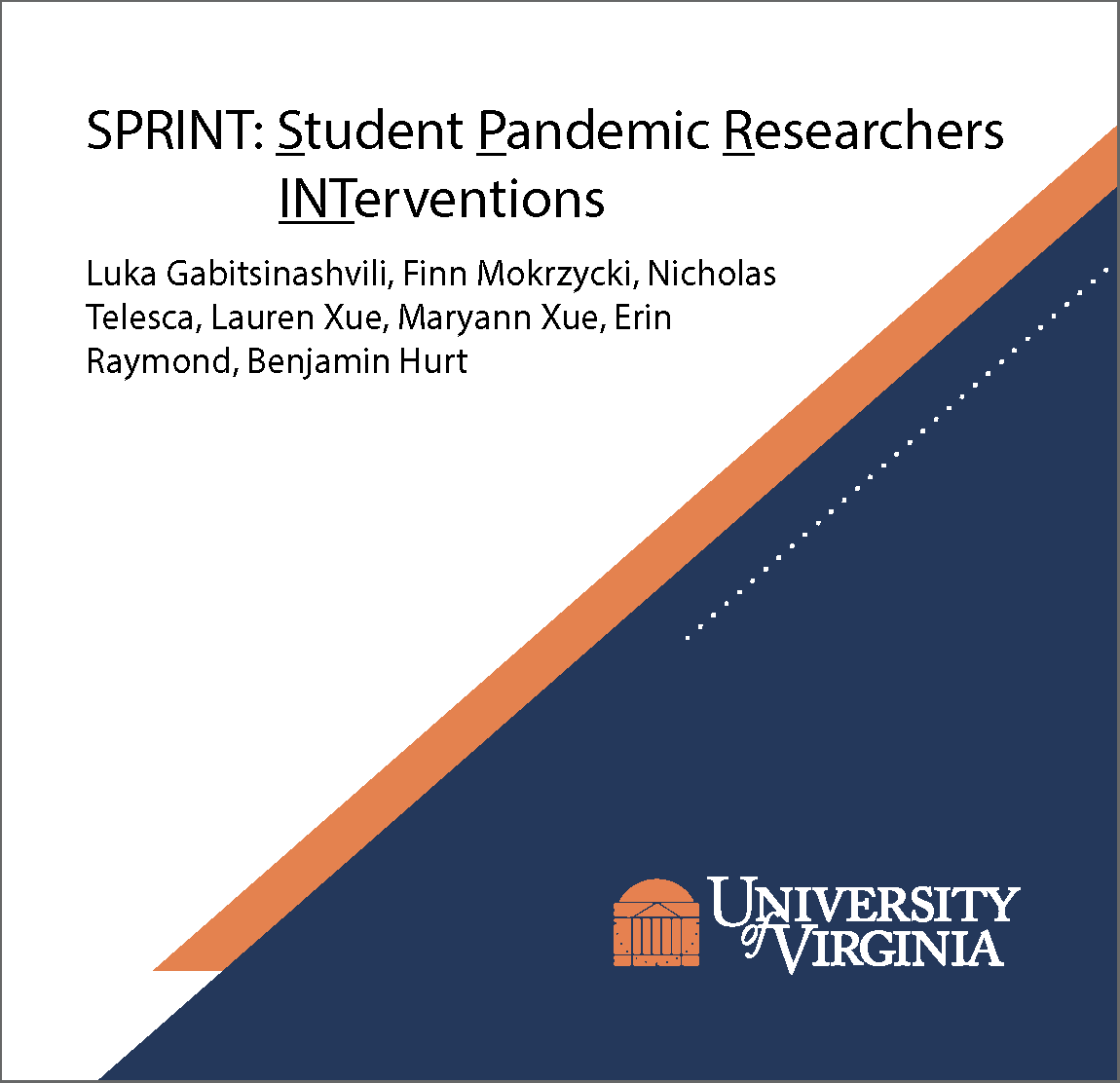|
Epidemics are a global phenomenon; consequently, it is imperative to establish research, educational, and training programs that create global scientists. This program supports a comprehensive national and international education and mentoring program to train multidisciplinary scientists in computational epidemiology. We have several efforts towards broadening participation in computing as a part of this project. From our diverse group of postdoctoral researchers to our mentoring of high school students, the Expeditions team is committed to ensuring successful outreach initiatives. |
 |
K-12 Outreach
Our team is committed to inspiring K-12 students and exposing them to computational epidemiology.
Kids' Tech University (KTU) is a Spring program developed by the Fralin Life Sciences Institute at Virginia Tech and Virginia 4-H, that puts scientists and engineers in front of children to encourage the exploration of intriguing topics in Science, Technology, Engineering, and Mathematics (STEM). These sessions will take place on Jan. 28, Feb. 18, March 18, and April 1, 2023.
|
This year we are offering the program in two ways: In-person and Virtually. The In-Person Program will be held at the Virginia Tech campus (Blacksburg, VA) and will include up to 160 kids (ages 9-12 by Sept. 30, 2022) and their parents. Kids and parents will watch interactive sessions presented by renowned research scientists and participate in hands-on activities led by undergraduate students and VT faculty/staff. Each day's events will center on common themes related to everyday life. The Virtual Program will be offered on the same dates as the In-Person Program. The interactive sessions will be live-streamed via zoom and materials for hands-on activities will be mailed home to each Virtual participant. |
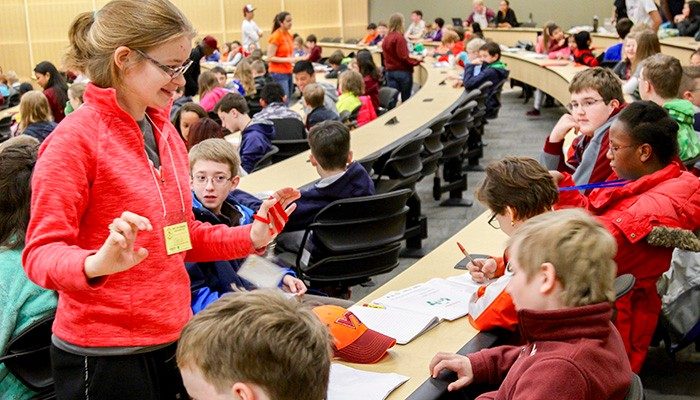 |
This is a nationally recognized K–12 program dedicated to the belief that all children can learn and succeed regardless of their socioeconomic background. We will conduct a one-week summer program for 16 high school students and 2 teachers affiliated with Achievable Dream. During this week-long program during the summer, the students will stay in dorms at Virginia Tech, eat dining hall food (a highlight), conduct hands-on science activities, work with various researchers, learn about the Expeditions grant and research being done, take campus tours and visit the VT Carilion School of Medicine.
Student Research
Our students, from high schoolers to graduate students, are doing research in many exciting areas.
The UVA team has started SPRINT: Student Pandemic Researchers - Interventions, a team of five undergraduate students working on a Virginia non-pharmaceutical intervention (NPI) data collection project. This unique data set includes Virginia county-level NPI start and end dates and the first data set is available now. They will proceed by tackling other states and gathering NPI data before it's too late.
The Biocomplexity Institute at UVA continues to offer its summer research program, Computing for Global Challenges with 25 high school and undergraduate participants in 2022. This year's C4GC participants researched several topics in computational epidemiology culminating in a virtual poster session; their posters can be found here.
We are facilitating 32 JROTC students’ research projects based on the Expeditions grant. The students are coming to Virginia Tech in Summer 2022 as part of a one-week program to participate in various activities including physical fitness tests (PT), leadership activities, science/engineering-based research projects, and college life activities.
EXPEDITIONS Journal Club
The goal of this club is to engage in the exchange of ideas and possible collaborations with undergraduates, graduates, and postdocs from different universities. Since the program includes undergraduate students, the journal club will also include a discussion of the basics of epidemiology and the tools used in the analysis. Further, for the journal club, we plan to have a bi-weekly seminar (every 2nd and 4th Friday at 2 pm ET), where graduate students and postdocs will present their work with the goal of finding common interests for future collaborations. The Expedition Club will also focus on training undergraduates with the more commonly used tools for the development of computer-based mathematical and statistical models.
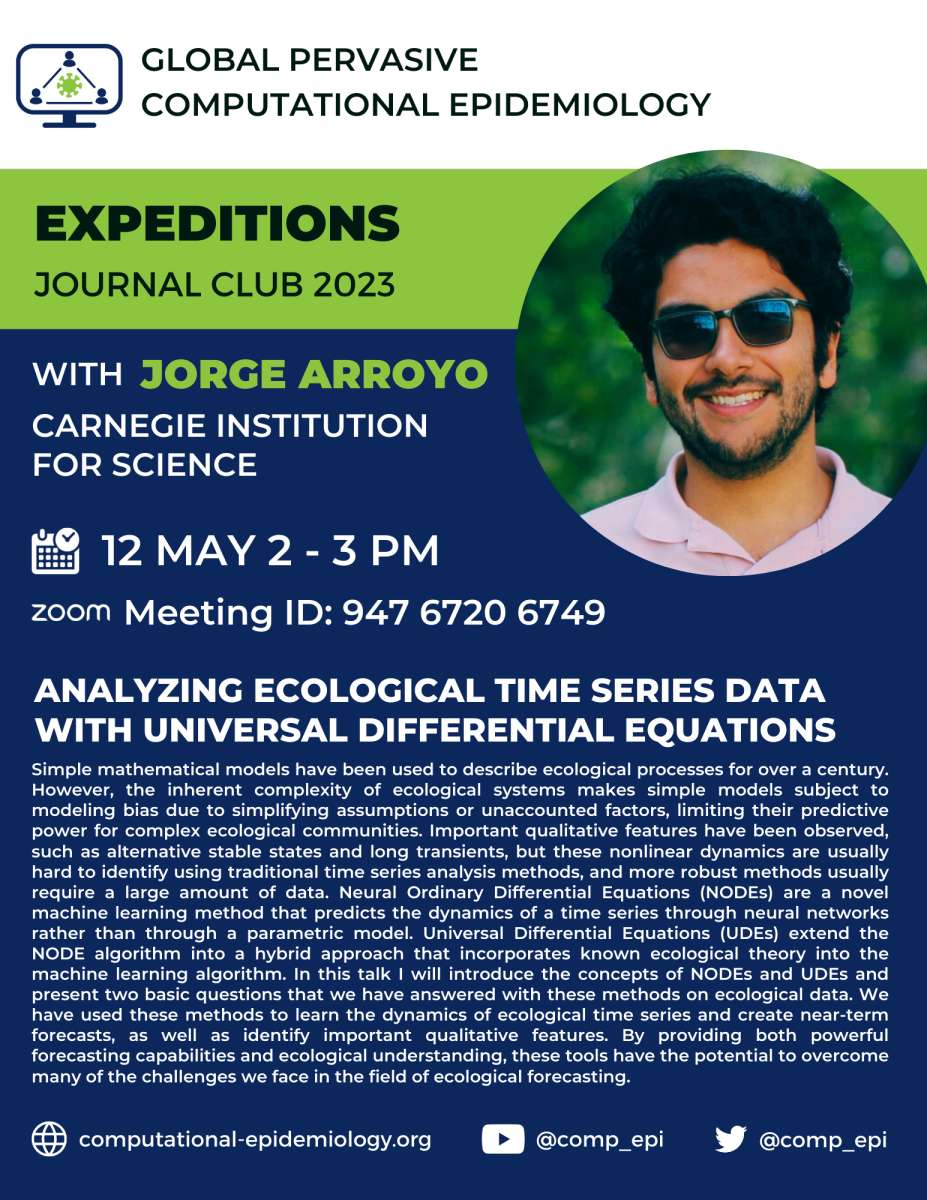 |
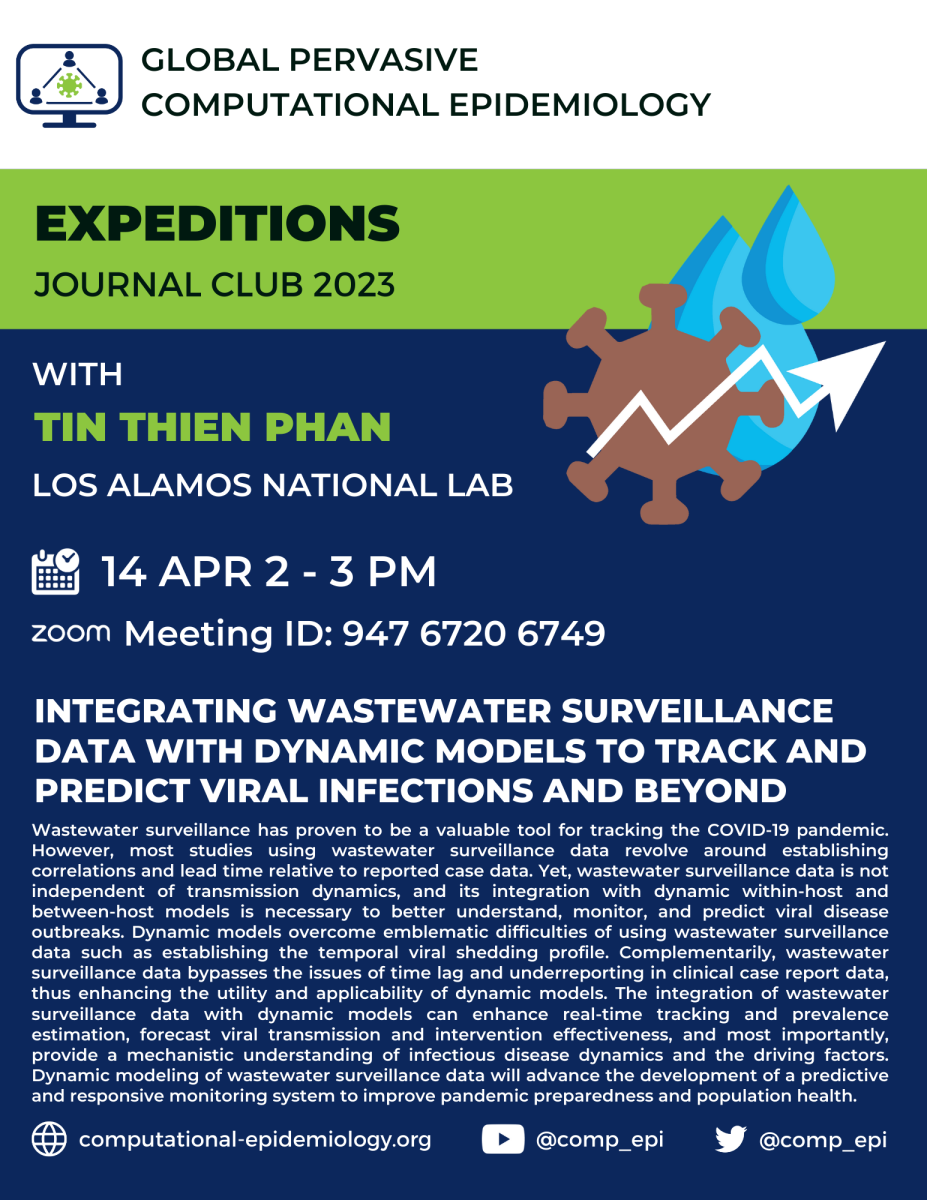 |
2023
Apr 14 // Tin Thien Phan (Los Alamos National Laboratory): Integrating wastewater surveillance data with dynamic models to track and predict viral infections and beyond
Mar 24 // Galen Harrison (University of Virginia): Predictability of Vaccination Surges and Google Search Trends
Feb 24 // Max Nguyen (Princeton University): Parameterizing network heterogeneity, with a test application on the herd immunity threshold, Related paper
Feb 10 // Camden Jansen (University of Virginia): Inferring transcriptional mis-regulation in LGL leukemia through integration of highly dimensional multi-omic data
Jan 27 // Long Nguyen (George Mason University): Physics-informed neural network approaches for studying the dynamics of infectious disease models
Jan 13 // Pablo Cárdenas (MIT): Genomic epidemiological models with Opqua describe pathogen evolution across fitness valleys
2022
Dec 9 // Jimmy Jose Calvo Monge (University of Costa Rica): Adaptive human behavior in mathematical models
Nov 11 // Chadi Saad-Roy (UC Berkeley): Immune life history, vaccination, and the dynamics of SARS-CoV-2 over the next 5 years
Oct 28 // Ana Gabriela Gómez Patiño (University of Los Andes, Colombia): Cell dynamics in Guillan-Barré Syndome--a mathematical approach
Jul 8 // Rounak Meyur (UVA): Ensembles of realistic power distribution networks
Jul 29 // Arindam Fadikar (ANL): Statistical challenges in agent-based modeling
Jun 24 // Gursharn Kaur (UVA): Prioritizing allocation of COVID-19 vaccines based on social contacts increases vaccination effectiveness
Jun 10 // Baltazar Espinoza (UVA): Mobility restrictions for the control of epidemics: When do they work?
May 27 // Zirou Qiu (UVA): Understanding the co-evolution of mask-wearing and epidemics: A network perspective
May 13 // Baltazar Espinoza (UVA): Adaptive human behavior in epidemics
Apr 22 // Gursharn Kaur (UVA): Switchover phenomenon induced by epidemic seeding on geometric network
Apr 8 // Sifat Moon (UVA): Error and attack tolerance of complex networks
Podcasts
Working closely with the NSF-funded PREPARE project, we have started developing a virtual community of individuals interested in pandemic planning and response. Our podcasts COVID Chasers and Science Before the Storm continue to draw an audience of the general public and researchers alike.


